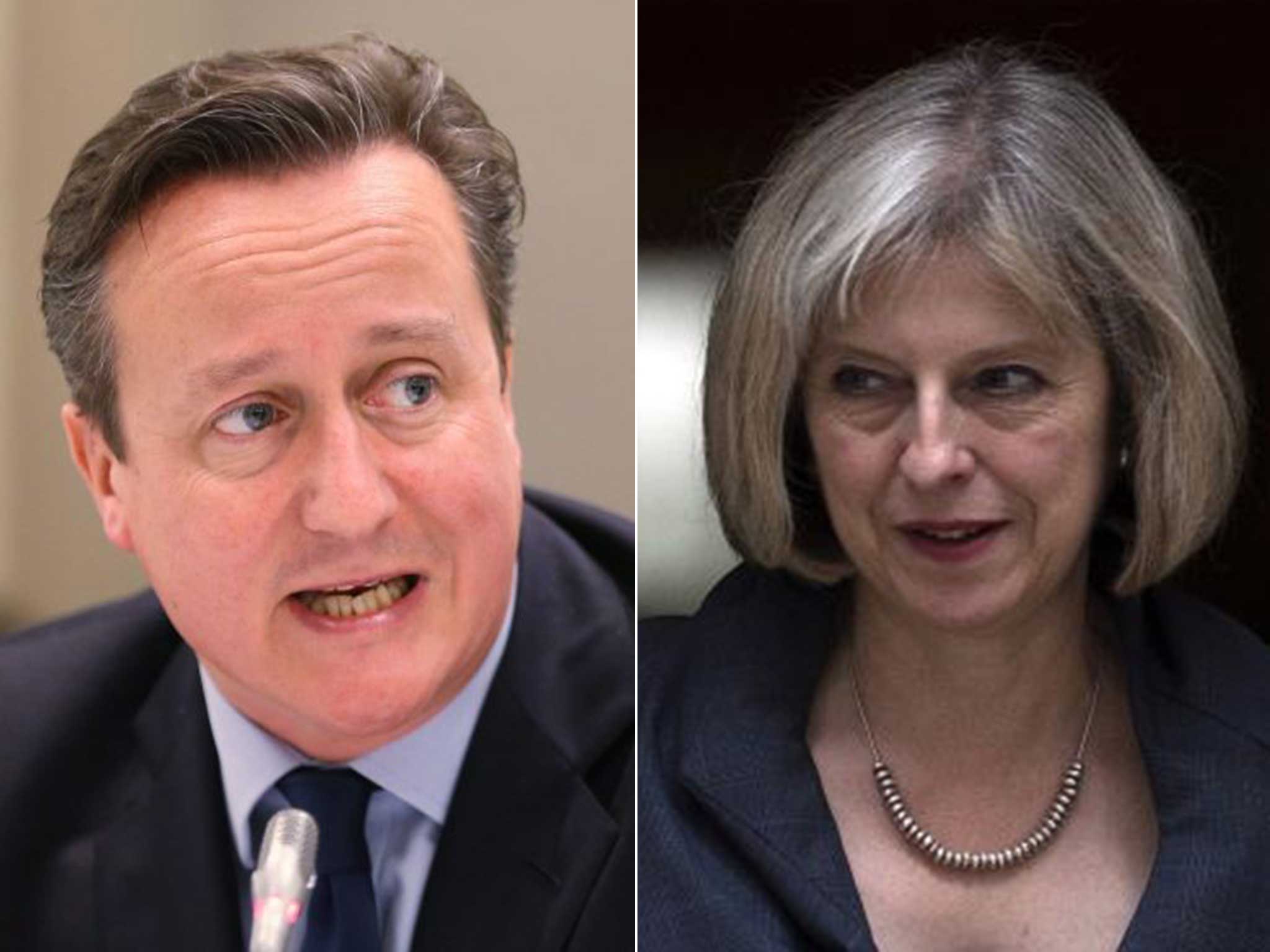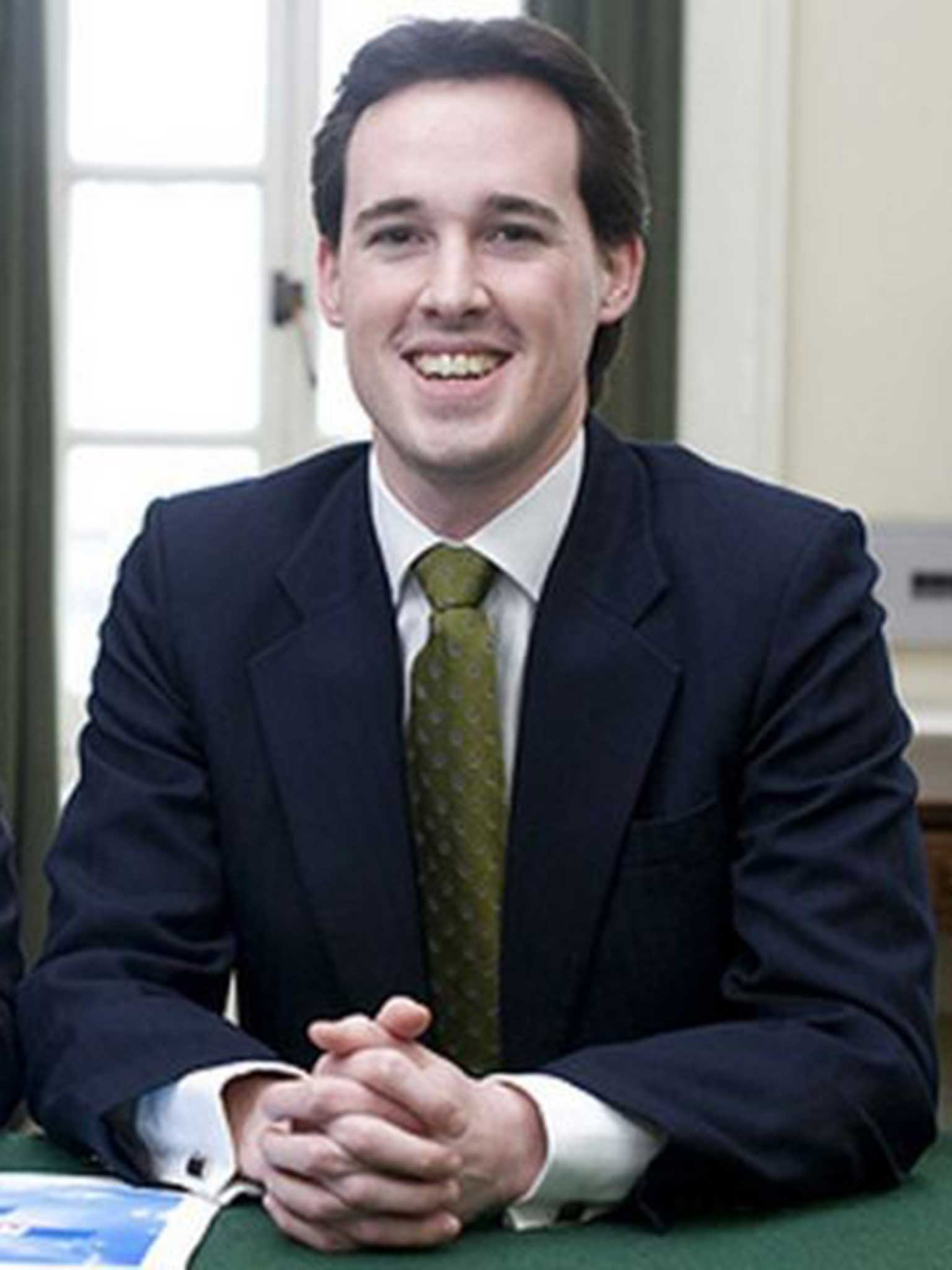David Cameron told Theresa May's advisers 'to break Civil Service code'
PM accused of exacting revenge after they refused to canvass for by-elections

Your support helps us to tell the story
From reproductive rights to climate change to Big Tech, The Independent is on the ground when the story is developing. Whether it's investigating the financials of Elon Musk's pro-Trump PAC or producing our latest documentary, 'The A Word', which shines a light on the American women fighting for reproductive rights, we know how important it is to parse out the facts from the messaging.
At such a critical moment in US history, we need reporters on the ground. Your donation allows us to keep sending journalists to speak to both sides of the story.
The Independent is trusted by Americans across the entire political spectrum. And unlike many other quality news outlets, we choose not to lock Americans out of our reporting and analysis with paywalls. We believe quality journalism should be available to everyone, paid for by those who can afford it.
Your support makes all the difference.David Cameron is embroiled in a row with Theresa May after he appeared to have ordered two of her advisers to break their Civil Service terms of employment to campaign for the party in two by-elections.
Nick Timothy and Stephen Parkinson defied the Prime Minister’s order to take part in telephone canvassing for the Rochester and Newark by-elections. Mr Cameron is understood subsequently to have agreed that they should be struck off the Conservative Party’s approved list of candidates for the next election.
Mr Cameron’s edict appears to breach the special advisers’ code of conduct which states that if special advisers “wish to take part in a by-election campaign they must first resign their appointment”.
A leaked Downing Street memo to special advisers sent last year and seen by The Independent clearly states: “The rules mean that special advisers can help in by-elections in their own time and outside office hours, but only by providing back-room support. Special advisers cannot do anything which identifies them publicly, so you could not do telephone campaigning.”

Ms May is believed to be backing her two advisers in the dispute after correspondence was leaked between Mr Timothy and the chairman of Aldridge-Brownhills Conservative Association where he had been on a shortlist of candidates to fight the seat.
In a letter to the chairman Mr Timothy wrote: “I should tell you that this week I was informed that I have been suspended from the candidates’ list. This, I was told, is because I did not participate in telephone canvassing during the Rochester and Strood by-election campaign.
“This decision cannot be valid because, as Theresa May’s chief of staff, I am bound by the code of conduct for special advisers, which is unambiguous.”
Earlier, the chairman of Aldridge-Brownhills had been told by Tory Central Office that Mr Timothy had voluntarily withdrawn his name from consideration. As a result the chairman wrote to the Tory chairman Grant Shapps stating: “Accusations that our members were deliberately misled are concerning and completely unacceptable.”
It is understood that both Ms May’s advisers have her full backing and that relations between her and Downing Street are “awful”.
In the wake of the row, the Cabinet Office has appeared to alter its previous advice to special advisers. In an initial response it said special advisers could use their own time “to take part in back-office activities” which would not be “inconsistent with the code”. It later put out another statement saying that telephone canvassing was not incompatible with the code.
It also emerged today that George Osborne and Danny Alexander both gave their special advisers large pay rises last year despite imposing below-inflation pay caps on millions of public sector workers. The latest figures, slipped out by the Government today, reveal that in the last year Mr Osborne’s key political adviser Rupert Harrison saw his pay packet rise by almost 20 per cent from £80,000 a year to £95,000.
At the same time Mr Alexander bumped up the pay of his own adviser Will de Peyer by 16 per cent to £75,000 – while bringing in another special adviser earning £95,000. Overall official figures showed that the pay bill for special advisers has risen to more than £8m.
Christopher Lockwood, the deputy head of the No 10 Policy Unit, received £134,000; the Prime Minister’s press secretary Graeme Wilson got £110,000; and Kate Fall, Mr Cameron’s deputy chief of staff, received £100,000.
Join our commenting forum
Join thought-provoking conversations, follow other Independent readers and see their replies
Comments